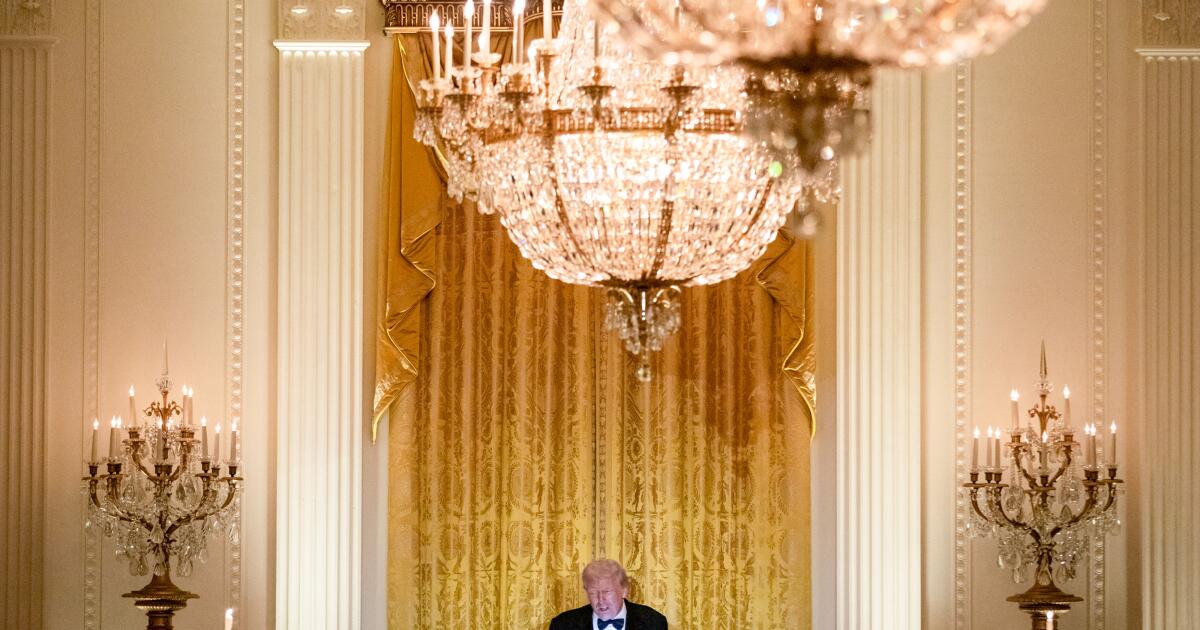Trump faces a ticking clock on healthcare costs
WASHINGTON — Republicans won a significant political victory this month when moderate Senate Democrats joined them to end the longest government shutdown in U.S. history, relenting from a showdown over the rising costs of healthcare.
But the fight is already back on, with mere weeks to spare before the Trump administration faces a potential uproar from the public over the expiration of Affordable Care Act tax credits on New Year’s Day, when premium costs will skyrocket.
The fast-approaching deadline, coupled with stinging defeats in elections earlier this month driven by voter concerns over affordability, has prompted a series of crisis meetings in the West Wing over a path forward on Capitol Hill.
The White House response that emerged this week is a political Hail Mary for an increasingly divided party entering an election year: a second megabill, deploying the parliamentary tool of reconciliation, addressing not just healthcare costs but Trump’s tariff policies under intense scrutiny at the Supreme Court.
“We’re going to have the healthcare conversation. We’re going to put some legislation forward,” White House Deputy Chief of Staff James Blair said Tuesday, addressing a breakfast event hosted by Bloomberg Government, as House Republican leaders pitched the plan to their members in a closed-door meeting.
“The president probably would like to go bigger than the Hill has the appetite for,” Blair added, “so we’ll have to see how that, you know, works out.”
New plan, last minute
House Majority Leader Steve Scalise presented the plan to skeptical Republican lawmakers on Tuesday, arguing an extension of tax credits for what he called the “Unaffordable Care Act” — even if they are renegotiated on Republican terms — would only mask the problem of rising premium costs, ultimately burdening the taxpayer.
Trump sent a message to the caucus ahead of their meeting on Tuesday morning with a post on Truth Social, emphatic in all caps.
“THE ONLY HEALTHCARE I WILL SUPPORT OR APPROVE IS SENDING THE MONEY DIRECTLY BACK TO THE PEOPLE, WITH NOTHING GOING TO THE BIG, FAT, RICH INSURANCE COMPANIES, WHO HAVE MADE $TRILLIONS, AND RIPPED OFF AMERICA LONG ENOUGH,” Trump wrote. “THE PEOPLE WILL BE ALLOWED TO NEGOTIATE AND BUY THEIR OWN, MUCH BETTER, INSURANCE. POWER TO THE PEOPLE!”
“Congress, do not waste your time and energy on anything else,” Trump added. “This is the only way to have great Healthcare in America!!! GET IT DONE, NOW.”
Yet the plan is causing anxiety across a wide ideological range of Republican lawmakers, including moderates in vulnerable races entering next year’s midterm elections as well as those from deep red districts whose constituents rely on the Affordable Care Act, more widely known as Obamacare.
Nearly six in 10 Americans who use the ACA marketplace live in Republican districts, according to the Kaiser Family Foundation. Enrollment is highest across the South, where districts across Texas, Mississippi, Georgia, South Carolina and Florida consistently see more than 10% of their residents relying on the program.
Going for broke with reconciliation
Trump’s proposal would do away with the tax credits, potentially overhauling health savings accounts that would encourage Americans to save on their own and choose their healthcare plan.
But it’s unclear whether such a dramatic, last-minute change in the healthcare system, still in draft form, would garner enough Republican support to pass the House, where Speaker Mike Johnson (R-La.) can only afford to lose two Republicans on party-line votes.
The bill would come in a perilous political environment for Republican lawmakers, who one year ago faced a tie with Democrats on a generic ballot, according to an NPR/PBS News/Marist poll. In the group’s latest poll, Democrats are up by 14 points.
Even if Trump’s proposal were to secure House support, the Trump administration’s plan to pursue a bill through reconciliation in the Senate — which allows the upper chamber to pass legislation with a simple majority, instead of 60 votes — could face significant hurdles.
Senate parliamentary rules only allow reconciliation to be used for legislation that directly changes federal spending, revenues, or the debt limit. That could encompass an overhaul to health savings accounts, and potentially to codify Trump’s tariff policies, which have been approved through reconciliation in years past. But the fine print would be up to the discretion of the parliamentarian, whose cuts to tangential policy provisions could upend delicate negotiations.
Reconciliation was used in Trump’s last major push to repeal Obamacare, in 2017, when the late Sen. John McCain (R-Az.) surprised the nation with a thumbs-down vote on the measure.
That bill, McCain argued, would have repealed the healthcare of millions without a plan to replace it.
What else you should be reading
The must-read: Could Trump destroy the Epstein files?
The deep dive: A bombshell federal fraud case exploded inside Gov. Newsom’s powerful political orbit
The L.A. Times Special: This Arizona town is an unexpected magnet for Californians: ‘We do it our way’
More to come,
Michael Wilner
—
Was this newsletter forwarded to you? Sign up here to get it in your inbox.
